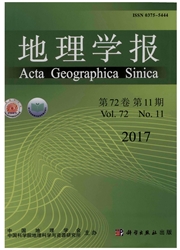

 中文摘要:
中文摘要:
随着交通通讯技术的发展,跨国公司在东道国内部实现功能空间分离。伴随中国渐进式的改革开放进程,全球500强跨国公司逐步在中国实现地理扩张和功能扩张。本文基于1979-2008年电子信息和医药化工产业的全球500强跨国公司在华投资数据研究跨国公司功能区位。研究表明,跨国公司倾向于在已有投资的城市追加投资,不同功能呈现一定差异性地理分布,但功能之间共聚趋势明显。区域性总部和商务功能聚集在一线城市,生产功能布局于省会和一线城市周边地区,研发功能追随生产功能。条件逻辑模型分析表明,跨国公司功能区位存在显著的公司内集聚、跨公司集聚、来源国集聚以及跨功能共聚现象。市场潜力及城市行政地位也是吸引跨国公司投资的重要因素。随着全方位开放格局形成,集聚效应较制度优势更为重要。跨国公司分支机构地理集聚提升一线城市的功能,强化顶级城市的领导力和聚集力。跨国公司的功能片段化布局既依托我国的城市等级体系,又在一定程度上重塑我国城市空间结构,促进城市体系按价值链等级进行专业化分工并推动区域协作。
 英文摘要:
英文摘要:
As transportation and communication technologies develop,multinational corporations are motivated to split different functions along the value chain across locations. Following China's gradual open door policy,multinational corporations(MNCs)have taken an evolutionary approach to enter the Chinese market,gradually increasing their resource commitments and expanding their geographies as they gain local knowledge and develop capabilities in host economies.As a consequence,the geographical agglomeration of foreign investments in China can be understood by the location and co-location of different functions invested by MNCs sequentially.Based on data from the Fortune Global 500 MNCs in electronics and medical and chemical industries investing in China during 1979-2008,this study found that MNCs have gradually expanded in China functionally and geographically. Statistical results suggest that sequential investments have led to the spatial clustering of MNCs'functions in both industries.MNCs from the same country tend to agglomerate in the same cities and there are substantial cross-functional agglomeration effects.Market potential and political status are additional attraction to MNCs'investments.MNCs attach greater importance to agglomeration effects more than institutional advantages.The empirical results indicate that globalization force is a critical factor in restructuring the Chinese urban system, upgrading the functions of top tier cities and enhancing the control power of top cities.
 同期刊论文项目
同期刊论文项目
 同项目期刊论文
同项目期刊论文
 期刊信息
期刊信息
